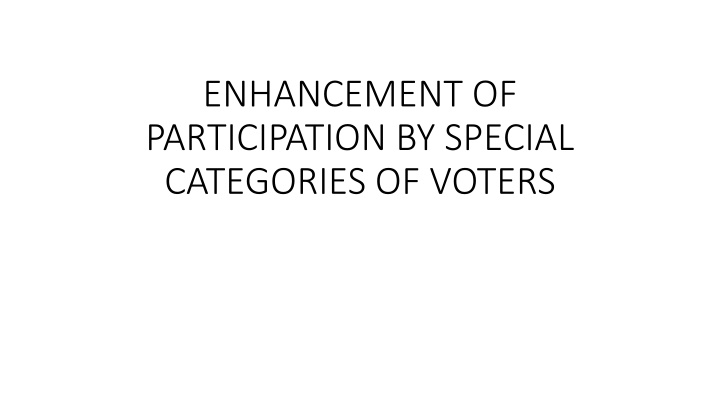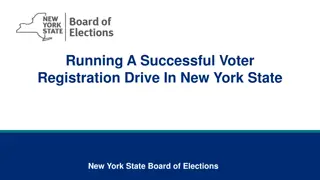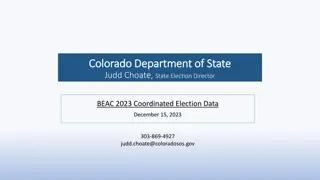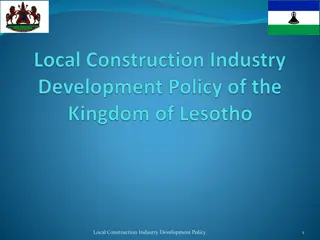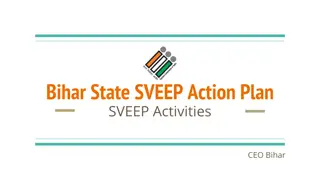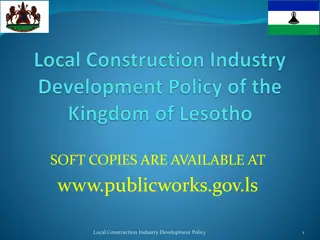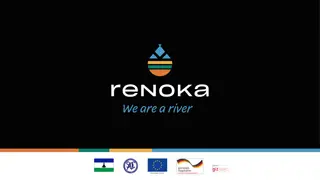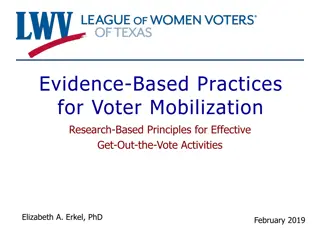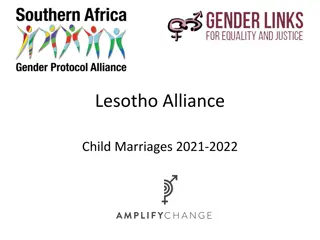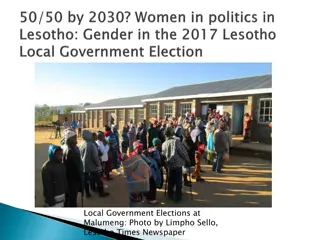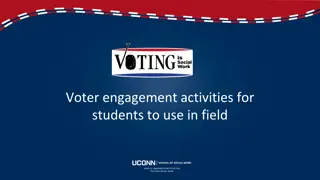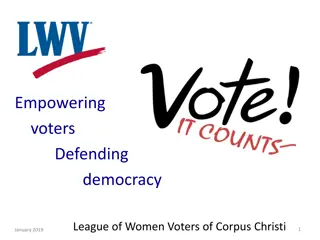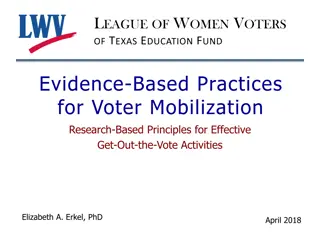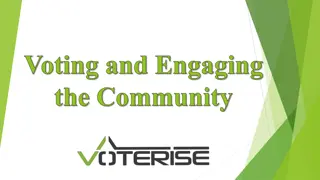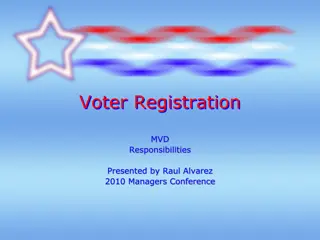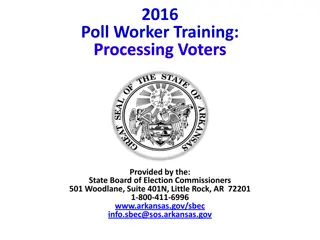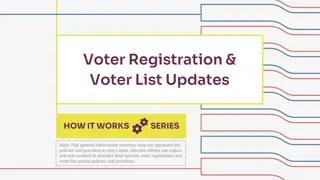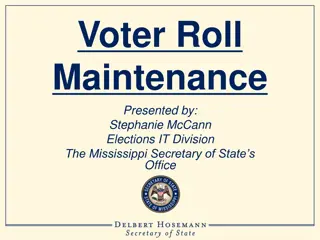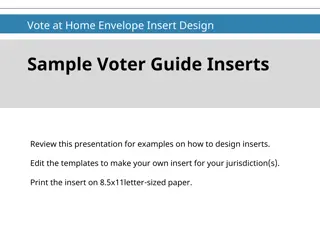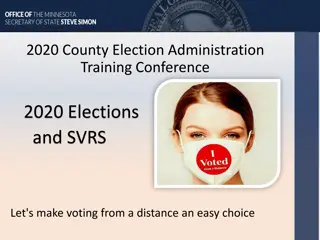Enhancing Voter Participation in Lesotho through Education and Engagement
The Independent Electoral Commission of Lesotho has actively worked to improve the electoral process and boost voter confidence through initiatives like civic and voter education. Recognizing the importance of educating various groups, they engaged Civil Society Organizations, political parties, and key stakeholders, emphasizing the need for inclusive participation in the electoral process. By prioritizing training and engagement, the Commission aims to enhance the democratic experience and increase voter turnout.
Uploaded on Oct 05, 2024 | 1 Views
Download Presentation

Please find below an Image/Link to download the presentation.
The content on the website is provided AS IS for your information and personal use only. It may not be sold, licensed, or shared on other websites without obtaining consent from the author.If you encounter any issues during the download, it is possible that the publisher has removed the file from their server.
You are allowed to download the files provided on this website for personal or commercial use, subject to the condition that they are used lawfully. All files are the property of their respective owners.
The content on the website is provided AS IS for your information and personal use only. It may not be sold, licensed, or shared on other websites without obtaining consent from the author.
E N D
Presentation Transcript
ENHANCEMENT OF PARTICIPATION BY SPECIAL CATEGORIES OF VOTERS
The Independent Electoral Commission of Lesotho Established in 1997 under the Constitution of Lesotho (2nd amendment to the Constitution Mandated to manage overall electoral process. i.e. That involves constituency delimitation, voter registration, nomination of candidates, voting, conduct of civic and voter education, establishment of liaison committees and announcement of results
During the period between 1993 and 2007 there was a lot of dissatisfaction on the electoral process, election results, voters did not have confidence in the Office of Chief Electoral Officer that was running elections in 1993 and the Independent Electoral Commission from 1997 to 2007. Lesotho has been popularly known of post election conflict resulting from election results
Civic and voter education by the IEC The Constitution mandates IEC to enhance knowledge of sound democratic processes The National Assembly Electoral Act, 2011 obliges the Commission to promote knowledge of sound electoral processes and practices i.e. Civic and Voter education
In 2001, after 1998 electoral riots, the Commission realised a need for massive voter education Engaged 298 temporary Voter Educators (VEs) Provision of voter education by temporary VEs has been practised from 2001 to date This was an overall voter education across the general voter population without any classification
In order for the Commission to build its image, gain back lost confidence, and promote participation in the electoral process, the Commission decided to enhance its efforts of voter education through the following: Engagement of Civil Society Organisations in the provision of voter education in a manner; gave them financial support Political parties educators to build the confidence of voters on the process Training of key stakeholders such as political parties, Lesotho Defence Force Lesotho Mounted Police and Invisible Security (National Security Services Personnel, faith-based organisations, people with disabilities, women groups and youth
More than 20 workshops were conducted for all the security personnel. These resulted into a slight increase of turnout, huge difference in terms of involvement of security personnel in matters relating to electoral violence, high level of understanding as to safeguarding elections. There is no longer tension between police and military on who should guard ballot boxes after before and after elections, as it used to be In inaccessible voting stations where military helicopters were used to airlift ballot papers, voting personnel and police
The number of voters who actually cast their vote in the police service and Defence has increased There is trust and cooperation between voting staff and the security personnel. The Air wing LDF personnel used to clash with IEC on transportation of election results together with police.
Polling Personnel Training of Polling staff improved Duration is 3 to 5 days Minimal errors in conduct of poll, rejected ballots and complaints by political parties Petitions relating to elections have also decreased
Diplomatic mission personnel and overseas citizens The Commission has done nothing so far. The Ambassadors are given self guiding manuals Citizens outside the country have not been given any education or training whatsoever. We have not yet looked into such. But at the moment political parties are mobilising each other towards pushing the Commission into finding means of enabling voters outside Lesotho to vote at Embassies
Challenges Cost of training programmes is very high Lesotho voter education is not continuous, its done only when there is going to be elections (3-6 months); there is no financial support for voter education in the non-election period Civic education has not been in place. The Commission in now making preparations to come up with a comprehensive programme of Civic education. No studies undertaken; election related research, evaluation programmes no institutionalised strategy nor policy
Conclusion The Commission has realised a need to embark on civic education inclusive of voter education. Challenge will be funds to do that if government is not ready to cater for continuous programmes Civic and voter education policy draft is already in place, it is pending discussion by stakeholders Commission has realised a need for intensive training for security personnel across the period of 5 years or beyond All these will depend on availability of funds
